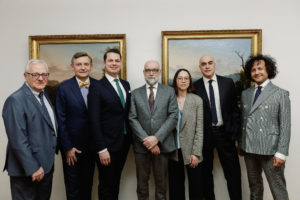The freedom of movement and the freedom of establishment are guaranteed for all professionals, including the fully qualified lawyers and for those who are partially qualified.
The primary law of the European Union has established, in time, the groundwork for the fully qualified lawyers through Directive 89/48 and Directive 98/5, but left a gap for those who are not fully qualified but have studied law and have worked in the legal field and wish to enroll in one of the European Union’s bars.
The Morgenbesser[1] case settled, to some extension, a set of guidelines for the Bars from the Member States to take into account when evaluating a candidate’s academic and professional training, throughout a comparative and in-depth perspective.
Accordingly to the Morgenbesser judgement, the Bar from each Member State must take into consideration the academic and all other stages of trainings completed successfully[2], as well as the national legal requirements, without compromising the freedom of movement. In the particular case of the profession of lawyer, any of the Member State must evaluate the applicant’s abilities, knowledge and competences regarding the legal profession in alliance with the State’s national qualifications.
Ioana Balan,
On behalf of Jinaru, Mihai & Notingher



